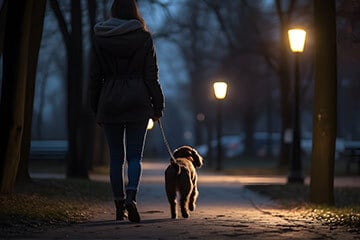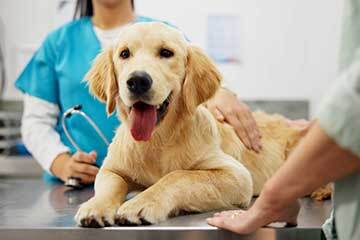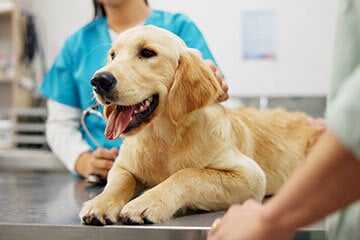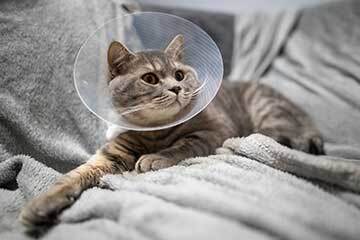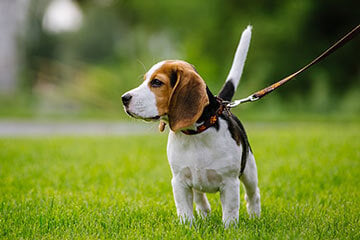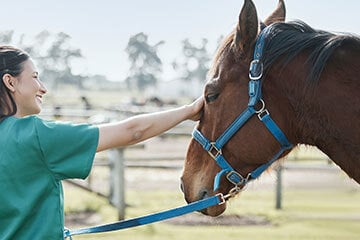It's a time of year that many pet owners dread - firework night. Both noisy and disruptive, fireworks can be frightening for our furry friends, and leave them with their tails between their legs.
While it's impossible to fully soundproof your home, our top tips can help keep your pets safe and comfortable this firework night.
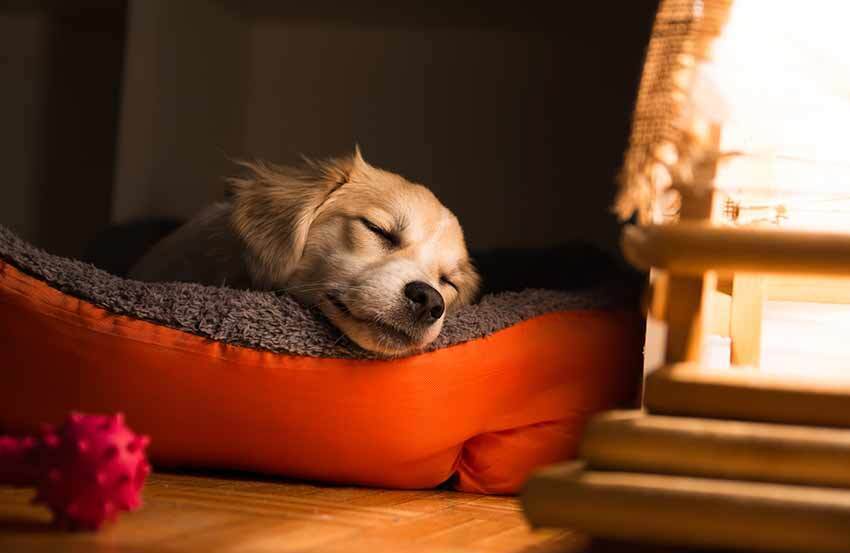
How to keep your dog safe during firework night
Dogs have much better hearing than humans, and can hear at distances up to 4 times farther away. While it may seem like a superpower, it can make loud noises particularly stressful for them. So it's common for dogs to feel frightened of all the loud bangs during firework night.
Even if your dog or cat doesn't seem fazed by fireworks, it's still important to take extra care during this time. Don't take your dog to a firework display even if they seem unbothered by the noise. The flashes and crowd can easily spook them.
Here's 4 things you can do to make your dog safer and more comfortable this firework night:
Make a safe space for them
Aim to ‘sound proof’ an area. For example, if they have a crate, you could drape a blanket over it and line it with cushions and soft furnishings. Draw the curtains so they can't see any flashes from outside.
If you don’t have a crate, you could create a den by draping a blanket across 2 chairs. The idea is to make it as cosy and soundproof as possible. Close the windows and doors too, so you're keeping the noise to a minimum.
Walk your dog early
Try to take your dog out before the fireworks start. That way they’ll be snuggled up and feeling safe before any of the noise begins. Give them enrichment toys like kongs or snuffle mats to keep them busy if they get restless during the evening. Read our advice on keeping your pet safe at night.
Reassure your dog
If your dog wants to be near you, let them. Give them lots of cuddles if they want them and speak to them in calm, reassuring tones. Don't shout at your dog if they start barking, and don't leave them alone in the house.
Your dog doesn't understand where the loud bangs are coming from, so giving them lots of affection can help reduce the stress of the night.
Microchip your dog
Your dog’s microchip has all your details on it, so if they run away, they can be brought back to you safely. It’s a legal requirement to have your dog microchipped - and you need to keep your details up to date too.
If you're unsure whether your dog's details are up to date, don't worry. You can take them to a vet, animal shelter, or dog warden to be scanned for the microchip number. Once you have the number, you can use an online microchip database lookup tool, like Petlog or Check-a-Chip to see where your microchip is registered.
How to keep your cat safe during firework night
Cats also have far superior hearing than people, allowing them to detect high-frequency sounds that are inaudible to us.
Here are 4 ways to help your cat during firework night:
Make a safe space for them
Aim to ‘sound proof’ an area, for example if they have an indoor cat house, you could drape a blanket over it and line it with cushions and soft furnishings. If they don’t have a house, you could create a den for them by draping a blanket across 2 chairs. The idea is to make it as cosy and soundproof as possible. Close the windows, doors and curtains too.
Get your cat in early
Try and get your cat in early. Make sure you have toys they can chase and a litter tray so they can go to the toilet. Read our advice on keeping your pet safe at night.
Reassure your cat
If your cat wants your attention, make sure you're there to comfort them. Give them lots of cuddles and speak to them in calm, soothing tones. Simply being there to reassure them can help make fireworks less frightening, and distract them from the loud bangs.
Microchip your cat
If your cat were to get spooked and run away, their microchip can help them be identified and returned home. Microchipping your cat is a legal requirement in England, though this doesn't apply to feral or community cats with little or no human interaction.
Although Microchipping your cat isn't mandatory in other parts of the UK, it's good practice to have them microchipped. You'll also need to make sure your details are up to date so they can easily be traced back to you.
When should I be worried about my pet's behaviour?
It's common for cats and dogs to display signs of distress during firework night. You might notice pacing, barking, panting, or other signs of anxiety.
If your pet's fear is severe or extreme, you may want to visit a vet for more advice. Your vet can recommend professional training to help manage noise phobias long-term, which is often more effective when started outside of the firework season, according to Vets for Pets and RSPCA.
How pet insurance can help
Accidents or emergency injuries could cost between £500-£1,200 in vet treatment costs.
And while pet insurance can’t stop fireworks, it can help pay for treatment if your pet escapes and gets injured. Some policies even cover the cost of printing missing posters.
More comprehensive pet insurance, like lifetime, covers illnesses as well as injuries. So if you need pet insurance, or if you think it’s time for a more thorough pet insurance policy, why not compare pet insurance with Confused.com? You could get a policy for just £5.11* a month.
*Prices based on Confused.com data taken between July 2025 - September 2025. Costs shown are based on the average monthly price paid for one dog with no pre-existing conditions. "Accident Only" cover across dogs of all ages, breeds and in all locations.


